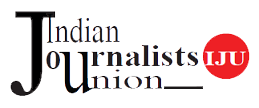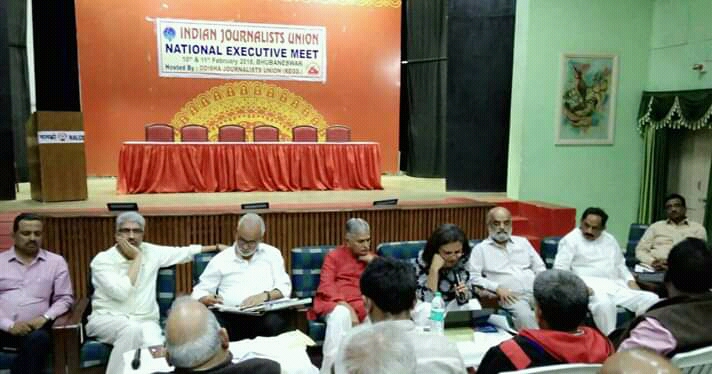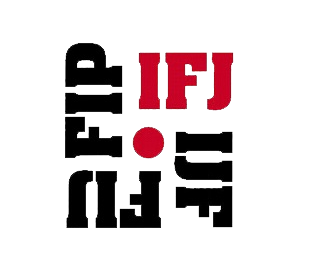The Indian Journalists Union, the premier and most representative organization of the working journalists in the country demanded that the Government of India should immediately appoint a new wage board to revise the wages of the working journalists and media employees in the country to bring them on par with the employees of other sectors and working in similar capacities.
The National Executive Committee (NEC) of the Union which met on 1011 February at Bhubaneswar thoroughly discussed the issues confronting the working journalists, the profession of journalism and freedom of press and expression in the country. It also discussed the issues of safety of journalists and increasing fatal attacks on the journalists in the country. It expressed anger over killing of six journalists, two of them in Tripura last year. It also demanded a special law for the protection of journalists.
The President of IJU S N Sinha presided over the meeting while the Secretary General Amar Devulapalli presented his report on the activities of the Union and raised issues of concern for the working journalists in the country. Besides senior leader K Sreenivas Reddy, other National Office bearers and Presidents, General Secretaries from 22 State unions and NEC members from 22 states attended the meeting and actively participated in the debates. Odisha Journalists Union hosted the meeting.
In a resolution, the IJU National Executive said while the media industry, notwithstanding the protestations of the managements, has posted healthy growth of circulation, revenue and profits in the last one decade, while the wages of the working journalists and other media workers either stagnated or eroded due to inflation. The media employees except a chosen few are languishing in low wages and high work pressure due to downsizing and closure of editions and bureau at several important and city centres. Hundreds of working journalists have lost their jobs as the managements were resorting retrenchments and denial of extension of contracts in name of cutting costs and maximizing profits.
The IJU resolution pointed out that the last wage board headed by Justice Majithia was appointed eleven years ago and said it was high time to appoint another wage board to go into the wage structure of the media professionals and employees so that they did not lag behind with employees working for government and other sectors. It called upon the working journalists and other media employees to fight unitedly to secure their livelihood and remunerative wages.
Inaugural Session Tapan Kumar Chand, Chairman and Managing Director of Navratna Public
Sector Company, the National Aluminum Company (NALCO) called upon the journalists to project the backward states to attract investment to generate employment for the youth. He said Odisha which has rich and abundant natural resources was not attracting enough investments due to low visibility at national and international levels.
He urged upon the media to promote the industrialization in Odisha by projecting its natural resources and 'ease of business' policies of the government to attract investments in backward regions and to develop and generate employment. He said the media not only mirrored the public opinion but it generated and sustained it. "The media is more than the mirror of the public opinion. While it reflects true and fair picture of public opinion, very often it generates and promotes public opinion", Chand said.
Presiding over the inaugural session, IJU President S N Sinha stressed the need for protection of free media in the country so that democracy became vibrant. "Our vision is to make democracy vibrant. But democracy cannot survive without media. We are committed to Free Press so that it benefits the society at large," he said.
IJU Secretary General Amar Devulapalli, Vice President Sabina Inderjit and senior leader K Sreenivas Reddy spoke on issues of freedom of press and expression and safety of journalists. They stressed the need for unity of journalists and strong organisation to defend not only their rights but to also democracy. Prabhat Dash, President of Odisha Journalists Union (OJU) welcomed the gathering and introduced the Chief Guest Tapan Kumar Chand. He said Chand who as student leader championed movement for establishment of NALCO in Odisha in 1980s was now heading the organization.
In his presidential address, Sinha said the profession of journalism was going through a difficult phase as many as six journalists were killed in Kashmir, such as blooddonation camps and medical checkups, and questi these public relations events. He said two journalists were killed within a span of two months while doing their professional duty. Prominent editor Gauri Lankesh was killed in Bangalore in front of her house for exposing the forces of communalism and obscurantist forces. He expressed his anguish that inspite of repeated demands the state and central government did not take any steps to bring a special law for the protection of journalists.
Sinha said the government and the private sector employees were getting wage revision at regular intervals, the journalists wages were revised more than a decade back. He said the working journalists and other media employees should launch a powerful movement to persuade the government of India to immediately appoint a wage board to revise their wages. He trashed the argument of the media managements that they did not have capacity to pay higher wages and said according to reports of the media bodies the media sector posted healthy growth of about eight percent in the last decade.
The IJU President said the in spite of a lot of hiccups and adverse scenario in the media sector three more unions, North Kashmir Journalists Association, Ladak Journalists Association from the state of Jammu and Kashmir and Arunachal Pradesh Union of Working Journalists joined the IJU fraternity. The National Executive Committee accepted their applications and affiliated them to the Union.
In his Secretary General report Devulapalli stressed the need to strengthen the organisation to fight for the not only rights and better living and working conditions for the journalists but also for the cause of freedom expression and democracy. He expressed his disappointment that the state unions were not coming forward to host NEC and National Council meetings, resulting in long gap between the two meetings. The state union representatives presented their reports on their activities and spoke on the Secretary General report, which was later approved unanimously.
The NEC drew up election schedule for the President and Secretary General for next term. According to the Union Constitution, the two principal officebearers are elected directly by the primary members of the union while the rest of officebearers would be elected by the Delegates and National Council members but the Plenary Session. The cut of date for the members to be eligible for participating in the election is 31 December 2017. The process ends in June 2018.





